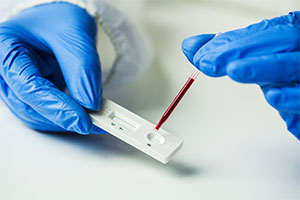 Do you know your cholesterol level? Cholesterol is a type of fat in your blood that plays a big role in heart health. Although it is essential for your body’s functioning, high cholesterol can be a serious threat to health, partly because you may not realize it is an issue until you experience a medical crisis. That is why a routine cholesterol screening is so valuable. They can provide peace of mind or enable you to get the treatment you need early enough to make a difference.
Do you know your cholesterol level? Cholesterol is a type of fat in your blood that plays a big role in heart health. Although it is essential for your body’s functioning, high cholesterol can be a serious threat to health, partly because you may not realize it is an issue until you experience a medical crisis. That is why a routine cholesterol screening is so valuable. They can provide peace of mind or enable you to get the treatment you need early enough to make a difference.
How Often Should You Get A Cholesterol Screening?
The U.S. Centers for Disease Control And Prevention (CDC) recommends that cholesterol checks start early in life; even children and adolescents should get their cholesterol checked.
According to CDC guidelines:
- Everyone aged 20 and older at a low risk of cardiovascular disease should have their cholesterol checked at least once every five years.
- People with cardiovascular disease risk factors should have their cholesterol checked more frequently.
- Children with diabetes or obesity may need more frequent cholesterol screening.
It’s a very simple blood test, and the results can serve as valuable guidance in your quest for good health.
Keep in mind that you may be asked to fast for a certain amount of time ahead of your test.
What Does Cholesterol Screening Tell You?
 Your cholesterol test results will indicate the following four measurements:
Your cholesterol test results will indicate the following four measurements:
Total Cholesterol
This is your overall cholesterol level. A normal reading is less than 200 mg/dL.
LDL Cholesterol
This is the “bad” cholesterol that can build up and clog arteries, leading to stroke or heart disease over time. The normal range is less than 100mg/dL.
HDL Cholesterol
Sometimes known as “good” cholesterol because it can clear your arteries of cholesterol buildup, the ideal amount of HDL cholesterol is more than 40mg/dL.
Triglycerides
This is a type of fat in your blood that should read at below 150 mg/dL to be considered normal.
Our doctors will discuss your results with you and make recommendations for how to improve any numbers that fall outside of the normal range.
The Risks Of High Cholesterol
 Having a high level of LDL, or “bad” cholesterol, can put you at risk of serious conditions, such as:
Having a high level of LDL, or “bad” cholesterol, can put you at risk of serious conditions, such as:
- Heart disease
- Heart attack
- Peripheral arterial disease
- Stroke
- Carotid artery disease
- Angina
Managing Cholesterol
There are several ways you can keep your cholesterol under control.
Be Physically Active
The CDC recommends getting at least 2 hours and 30 minutes of moderate exercise per week, such as brisk walking or biking.
Eat Healthy Foods
Focus on foods that are high in fiber, such as vegetables and fruits, as well as unsaturated fats like nuts and avocados, while limiting foods high in trans fat and saturated fat.
Take Medicine As Needed
Your doctor may prescribe medication to keep your cholesterol under control; always follow dosage instructions carefully.
Avoid Smoking
The damage caused by smoking to your blood vessels can raise your risk of heart disease and stroke.
Reach Out To The Providers For Cholesterol Screening & Management
At Imperial Center Family Medicine, we recognize the importance of early detection and treatment when it comes to cholesterol-related conditions. Call us today at 1-(919) 873-4437 to schedule your cholesterol screening in Durham, NC and ensure you are on the path to good health.
